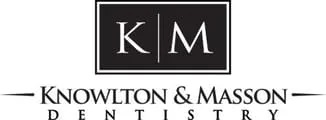Dry mouth, or xerostomia, occurs when the salivary glands can’t produce enough saliva to maintain a healthy oral environment.
Symptoms of Dry Mouth
Saliva helps us swallow, speak, taste, and digest. If you have a dry mouth, you can experience symptoms such as:
- A dry mouth and tongue
- A tingling or burning sensation in the mouth
- A sore throat
- Persistent thirst
- Stringy and thick saliva
- Difficulty eating, speaking, or swallowing
- Bad breath
Anyone can experience dry mouth on occasion, but persistent symptoms should be evaluated by your dentist or doctor.
Dry Mouth and Your Oral Health
Dry mouth causes more than physical discomfort; it can also impact your oral health.
Saliva helps protect teeth from decay. Saliva helps neutralize the acidic foods we eat, washes away food particles and bacteria, and contains minerals like calcium and phosphorus which remineralize tooth enamel preventing weak spots from becoming cavities.
Reduced saliva production does more than make teeth more vulnerable to decay. In the short-term, xerostomia causes bad breath and denture discomfort. Over time, dry mouth can lead to gum disease, mouth ulcers, oral thrush, sores, and infections.
Causes of Dry Mouth
Your dentist or doctor can help you discover the reason you’re experiencing dry mouth with a thorough examination and a dental and medical history. Possible causes for xerostomia include:
- Medical conditions such as diabetes, sleep apnea, and autoimmune disorders
- Medical treatments, especially chemotherapy and radiation therapy
- Medications (both prescribed and over the counter)
- Alcohol, tobacco, and recreational drug use
- Dehydration
Treating Dry Mouth
What can you do to reduce the symptoms of dry mouth and/or improve saliva production?
- Talk to your dentist or doctor about prescription and over-the-counter medications to increase saliva flow.
- See your doctor to discover whether a medical condition or medication is causing dry mouth. Treatment of the underlying cause or switching to a different medication can help restore saliva production.
- Drink fluids as recommended, especially water.
- Chew gum. Sugarless gum encourages saliva production. Sucking on sugar-free candies works as well.
- Watch your intake of sugary, caffeinated, or acidic foods, which can make symptoms worse.
- Ask about hydrating rinses and sprays.
- Brush regularly with fluoride toothpaste and consider fluoride rinses and fluoride treatments to strengthen tooth enamel.
If you are experiencing symptoms of dry mouth, see your dentist or doctor promptly. Discovering the causes of xerostomia and treating its effects will improve your quality of life and help you maintain your oral health.
